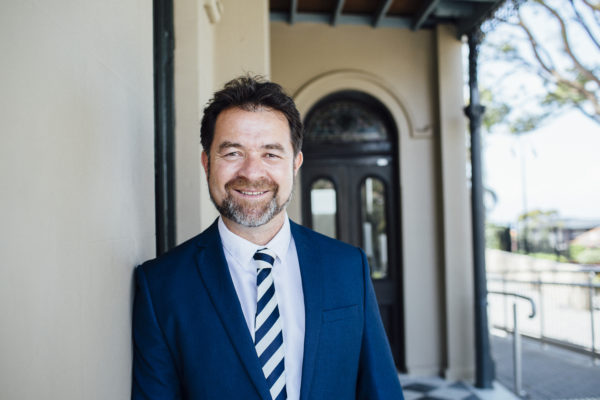
Mr Patrick Brennan, Deputy Principal - Student & Staff Wellbeing
The Right Balance to Avoid Over-Parenting
I was talking to some friends over the weekend about the days when we used to travel Europe without a smartphone, Google Maps or online bookings while living in the United Kingdom. We always had a copy of the London A to Z close at hand.
Part of the fun of the journeys to the Continent was arriving early in the morning, or late at night, in the middle of summer, without any accommodation or knowing where to go. Nowadays, our phones can book the accommodation in advance and guide us every step of the way to the hotel door, saving us time, money and stress. We can argue, however, that some of the most memorable travels were the ones with lessons learned getting from city to city with little or no digital assistance.
Some of those friends I spoke to have since resisted using Google Maps because they know that the safety net of the phone would tempt them too much. They would stop paying attention and eventually become dependent on it, with no idea how to navigate any city themselves. Simply being in the passenger seat has the same effect: we know the driver is responsible for getting us there and back, so we tune out. So it is with our children. Since executive function is a vital but finite resource, we are wired to use it only where necessary. In other words, we’ll avoid thinking about things if we can. This helps us to understand how deliberate rationing of our mental resources is key to high performance. It also helps us understand why we have a tendency towards irresponsibility if, like the passenger in the car, we can get away with it.
This is where parents and teachers come in. It is our duty to shape circumstances so they demand personal responsibility of our children. If handled correctly, these situations will help them to develop grit and resilience, thus putting them in a great position to overcome future challenges.
Dr Judith Locke has written and presented extensively on this topic. In an article in 2019, she gave some practical advice on how to avoid over-parenting. At Waverley College, the Reception staff and Heads of House experience young people’s tendency to shift responsibility onto their parents, so I asked them about where our boys seek unnecessary help because these are perfect opportunities to teach our children independence and personal responsibility. Forgotten lunches or items of uniform (academic and sport) are the most frequent examples. What’s the worst-case scenario if a boy forgets his lunch or doesn’t have his tie? The ‘Worst Possible Outcome’ is that he will get a plain sandwich provided by the College, have to obtain a uniform pass from their Head of House, or receive a three-hour detention.
Supporting the boys at school is a good thing. But, tempting as it is, reflexively leaping into action to deliver a forgotten lunch or tie can be a sign of over-parenting. What does it teach?
What could our students learn from these instances? They could learn that it’s worth paying attention to their timetable and packing their bags the night before. They could learn that everybody makes a mistake now and then, but that tomorrow is a new day and life will go on, even if he does get into (minor) trouble today. They could learn that wearing uniform correctly and with pride sends a message to others about commitment to learning and the College.
We reinforce to the boys that their school lives are their responsibility. We teach them friendship skills, and while we would always expect parents to tell us if they think there is a substantial case of bullying, we also ask that boys should generally be given the time and space to learn to resolve relationships for themselves.
Boys are given repeated reminders – to return permission slips, to clean their shoes or adjust their ties; to submit their homework; and to bring their equipment. No boy deliberately ignores these in order to make trouble for himself, and, like all parents, I am tempted to rescue a tearful boy who has made a simple mistake. But, the reality is that these kinds of mistakes are perfect learning opportunities because the ‘Worst Possible Outcomes’ are, in the scheme of things, trivial. If we respond as if these outcomes are catastrophes, we reinforce needless anxieties and entrench helplessness.
No single action by us will determine our son’s future, but our habits become theirs. In the current Zeitgeist, the tendency on the part of all adults (not just parents) is towards over-intervention in the lives of children. I’m not saying that anyone who has ever delivered a lunch is a bad parent. I am saying that we all need to stop, think and generally do much less of the day-to-day for our son. In addition, it’s important to support the Wellbeing team when a consequence is put into place. In the long run, it will be for your son’s benefit.
The opportunities for our son to learn are endless, and the thing to remember is that the stakes are low while they are at school. In the moment, it’s tempting to step in, but personal responsibility is a habit – and habits must be practised to take root. Over time, his habits will tend towards independence and responsibility, or towards calling home for help. When he’s 18 and heading off for a gap year in South East Asia, what habits do you want him to adopt?



